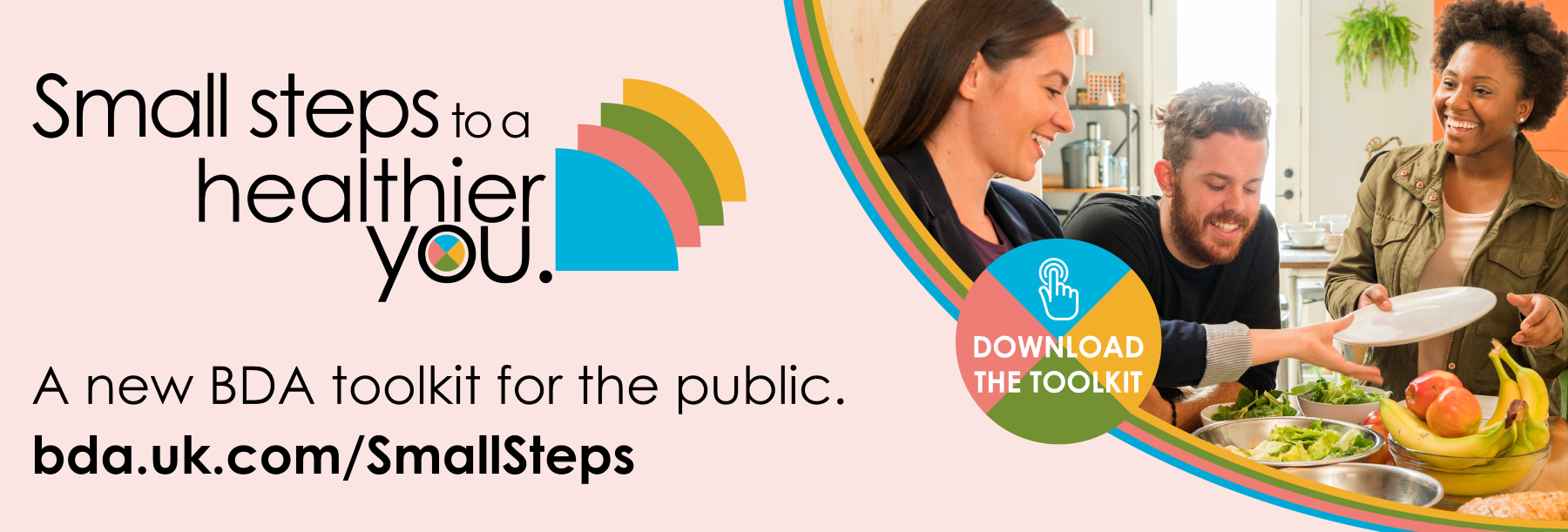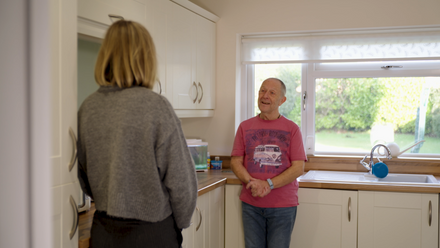It’s easy to live for today and have a short-term mindset when it comes to health. But, as research reveals weight as the top health priority for Brits in 2025, dietitians say it’s time long-term health and wellbeing were prioritised instead
A new toolkit from the BDA promotes the small steps you can make to support long-term health
42% of people don’t prioritise their future health according to a new survey by YouGov and the British Dietetic Association (BDA). Over 2,000 adults in Britain were asked about their attitude towards their future health with regards to the food they eat and what they want to prioritise in 2025.
17% of people said they live in the here and now, 14% said they eat what they want when they want and 11% said they don’t eat foods to support their health despite knowing they would benefit from them.
When asked about their main health and wellbeing priorities for 2025, 22% of people said they wanted to improve their weight, a trend seen every new year. This was the most popular priority in the survey, whilst specifically improving diet was only the main priority for 6%, which dietitians view as critical to improving the nation’s health and wellbeing now and into the future.
Despite promoting the need for an overall approach to health, dietitians realise the message isn’t getting through, with people continuing to focus on weight loss as a measure of good health. And, with the number of people living with chronic health conditions like cancer and diabetes projected to increase, they say it has never been a more important time to focus on preventative health.
Registered Dietitian Priya Tew says, “Whilst society and social media can be very focused on weight, we know that weight is not a good predictor of health. You can be healthy in any size and shape body! So instead of focusing on weight this new year, we’d be better putting our energy into improving our overall health behaviours instead, which will benefit us for the years to come.”
Dietitians, who constantly have to work to educate their patients and clients about the importance of good nutrition, and unpick age-old myths and misinformation about food, are urging the public to not fall into the trap of focusing on weight and weight loss this new year.
Instead, they’d like to see people focusing on the small additions and changes they can make, not only to the food and drinks they consume, but also to other health pillars like sleep, movement and good mental health, all of which support overall health and wellbeing.
Registered Dietitian Misbah Ameen-Khan says, “Weight loss is often seen as the end-goal. But building healthy habits slowly and steadily gives us tremendous benefits such as better energy levels and better mood. Starting small and tweaking those changes as they become part of our daily routine really helps with our confidence and motivation.”
Evidence shows that good hydration and having a balance of foods, which provide all the nutrients our body needs can reduce our risk of disease, make us happier and live a longer life.
Priya Tew says, “Nutrition is really key to our health. If you are giving your body good nutrition and getting the balance right it will help all areas of health including your energy levels, your mental health and your sleep too.”
Claire Fudge, Registered Dietitian says, “Unfortunately, the idea of making small sustainable changes to our health, by eating more vegetables, more fibre, staying hydrated and eating a good balance of different foods, isn’t sexy and sounds a bit boring! But it is maintainable, will make us feel better and support our overall health now and into the future. It also stops the need to constantly keep weighing yourself as a measure of success and stops the cycle of being on or off a diet.
“Just like a car, you need the right fuel to run your engine. If you put the wrong thing in the tank, you aren’t getting far.”
In the survey, people also said that improving fitness levels (20%), mental health (12%) and sleep (10%) were also key priorities for them. As with the food we eat, each of these can have a profound effect on health.
Claire Fudge adds, “Sleep is such an important part of the health puzzle and in my opinion it’s one of the greatest investments you can make in your health. It feeds in to so much of life, from recovery and repair of the body, reducing inflammation, impacting your hunger hormones and ultimately reducing your risk of disease.”

Small steps to a healthier you is a new free toolkit written by dietitians at the BDA, which supports people with their health journey through small, consistent, and sustainable changes. It focuses on compounding health, which are all the small changes and tweaks that can be made that add up to have a big impact to overall health. It covers what you can add to your meals, how to improve your sleep and mental health and getting moving. The idea is to move people away from making drastic changes in the new year, which purely focus on weight loss and encourage a rounded approach to health now and into the future.
The BDA is a PIF TICK certified Trusted Information Creator.
The information here is general. If you have a medical condition, are pregnant or a child, please seek advice from a registered dietitian or health care team before making any changes to usual dietary advice.
ENDS
If you require more information, the full findings of the report or to speak directly with one of our registered dietitians and BDA spokespeople please get in touch at [email protected].
Methodology
All figures, unless otherwise stated, are from YouGov Plc. Total sample size was 2,036 adults. Fieldwork was undertaken between 20 - 21 November 2024. The survey was carried out online. The figures have been weighted and are representative of all GB adults (aged 18+).







